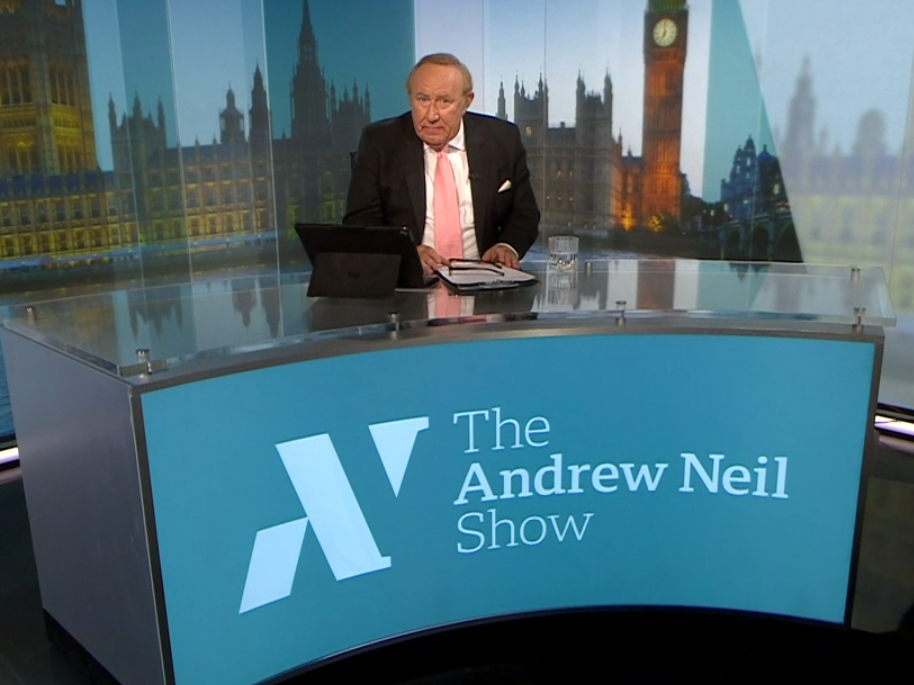
The Andrew Neil Show has been cancelled as BBC News revives plans for a restructure that will now see more than 500 jobs cut.
Plans to cut 450 roles were originally unveiled in January before they were put on hold during the worst of the Covid-19 pandemic.
Staff have now been told an extra 70 jobs will be lost, taking the total to 520, as the plan is rolled out in stages. The BBC said these job losses will include senior management.
The National Union of Journalists said 120 of the post closures had been revealed in January and a further 150 today, leaving 250 still to come.
The Andrew Neil Show, which launched in September 2019, will not return – following in the footsteps of the Victoria Derbyshire Show which was canned earlier this year.
A BBC News spokesperson said: “We remain committed to Andrew Neil’s in-depth interviews (as well as the Budget, US Election and other Specials).”
They added that they are in discussions with Neil about a new interview series for BBC One.
Politics Live, which has only aired on Wednesdays during the pandemic, will return on only four days of five – Mondays to Thursdays – following an outpouring of support for the BBC Two programme.
Using lessons learned during lockdown fewer studios will be used, meaning “significant reductions” will be made in the number of operations staff. The presenting pool will also be cut.
BBC Parliament will focus on live and as-live coverage and produce daily and weekly highlights programmes but no longer commission bespoke programming.
The BBC’s vision outline in January is for a “modernised” newsgathering operation that will see fewer reporting staff and more correspondents working across different programmes.
Director of news and current affairs Fran Unsworth said today: “During this crisis audiences have turned to BBC News in their millions and I’m incredibly proud of what we, as a team, have been able to achieve.
“But if we don’t make changes, we won’t be sustainable. This crisis has led us to re-evaluate exactly how we operate as an organisation. And our operation has been underpinned by the principles we set out earlier this year – fewer stories, more targeted and with more impact.”
The BBC faces lost income of an estimated £125m in the next year because of the Covid-19 crisis. It already had to make £800m in savings by 2022, including £80m in the news department.
But the National Union of Journalists’ broadcasting organiser Paul Siegert said if the Government does not increase funding for the BBC the alternative is a “slow death… as people are deprived of the programmes and services they want and love”.
The BBC’s updated restructuring plans include appointing a commissioning group made up of its existing editors to co-ordinate the biggest planned stories and avoid duplication.
There will also be a new team bringing together staff from the Victoria Derbyshire Show and digital storytelling team BBC Stories to focus on under-reported off-diary stories for daily news programmes and online, it said.
The BBC News Channel and BBC World News will continue to share some output as they have done since the start of the pandemic.
Meanwhile, radio network World Service English’s The World This Week will not return and Newsday will be shorter as it also makes some of its pandemic changes permanent.
Business coverage will be more integrated with the wider output, which the BBC said will increase it impact. This means there will no longer be separate business bulletins on the BBC News Channel or World Service English, and the Business Online page will go.
BBC Radio 4’s In Business will also close.
The BBC also said it will increase the number of journalists on the digital team and roll out more stories in the morning when its online audiences are highest.
The number of community affairs roles will be cut in London but more will be appointed around the UK.
The cuts to BBC News are separate to those facing those in the BBC’s regional newsrooms.
Some 450 jobs in radio, TV and online will go at BBC England as it must make savings of £25m by the end of March 2022.
A further 150 roles will be lost across the BBC in Scotland, Wales and Northern Ireland.
Picture: BBC
Email pged@pressgazette.co.uk to point out mistakes, provide story tips or send in a letter for publication on our "Letters Page" blog
